|
A new year means new resolutions and I have the perfect one for you: a do-able and delicious healthy lifestyle. Clean eating has a wide range of health benefits such as having more energy, maintaining a healthy weight, and filling your body with nutritious vitamins and minerals. Having a realistic and rewarding resolution is the key to meeting your health goals throughout the year. Here are some examples of wholesome, healthy, delicious meals you can quickly make for yourself and your entire family to enjoy. Cheers to a healthy, happy, and prosperous 2020!
0 Comments
Don’t let the holidays derail your healthy lifestyle. Moderately indulging in family favorites is okay on Christmas Eve and/or Christmas Day, which is only one or two meals of out ninety- three possible meals in the month of December. It’s also a good idea to mix new, healthier main and side dish options with your most favorite family holiday recipes, to create a meal that you can feel good about and enjoy! I’m always telling my patients that all calories are not created equally. Our bodies were designed to process whole foods, such as meats, fruits, vegetables, nuts, and legumes. Consuming processed foods, such as boxed/bagged meals and snacks, increase inflammation in the body, which can lead to inflammatory diseases, such as diabetes. I advise a diet consisting of mostly vegetables, a moderate amount of fruit, and some meat or other natural protein source. Snacks can include a slice of cheese, a palmful of nuts or seeds, an apple with nut butter, homemade popcorn, etc. Moderate fats, from oils, avocados, nuts, are necessary for satiation and are good for you. Making small changes, such as enjoying a savory dip with fresh vegetables, instead of chips, is helpful to your overall wellness. Eating a diet of low inflammatory, natural foods will improve your overall health. I hope that you will find the following holiday menu satisfying, delicious, and nutritious. Wishing you a Merry Christmas and Bon Appetit! Find each recipe from this menu below!
 Although Dr. Brandon Sick sees the majority of his patients in his office, he also recognizes that significant mobility issues can sometimes prevent someone from traveling. If you feel as though an illness or injury is making it impossible for you to come for an office visit, simply call the office at 803-329-7425 to discuss options, up to and including a house call visit. If you think a primary care physician who makes house calls when necessary will improve your medical care, enroll online with Rock Hill Primary Care or call us at 803-329-7425. Dr. Brandon Sick Provides Personalized Care House calls make medical care more convenient – so, when you need special care and can’t travel to the office, Dr. Sick will come to you. In 1930, approximately 40 percent of doctor’s visits happened in the patient’s home, according to American Family Physician. Today, that option has become significantly less available; but, when needed, Rock Hill Primary Care provides personal care in your home. This gives you the personalized attention from yesterday with today’s cutting-edge medical knowledge. Rock Hill Primary Care offers house calls because our patients deserve convenient, patient-centered medical care. But house calls aren’t the only way that we strive to put patients first. Check out the other benefits that Rock Hill Primary Care has to offer. If you’re ready to make an appointment, fill out our online enrollment form or call us at 803-329-7425 to schedule a free consultation. 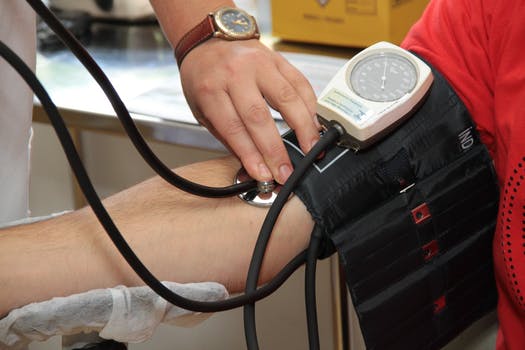 When you choose Rock Hill Primary Care’s Dr. Brandon Sick as your primary care physician, you will receive high-quality, personalized care. We use the direct primary care model, which saves you and your family money. A wide range of exams are provided at no extra cost to you. These include EKG, cyrotherapy, lesion removal, laceration repair, joint injections and more. For more information on the cost of our care, look at our Cost Comparison Chart. If you’re ready to receive quality medical care at affordable prices, then enroll online today or call us at 803-329-7425 to schedule a free consultation. Quality Health Care in a Primary Care Setting A recent article in Forbes shares that 75 percent of medical services for the average patient can be provided in a primary care physician’s office. The article is titled With Direct Primary Care, Health Care Doesn't Have to Be Expensive, and it shares these eye-opening statistics:
Enroll with Rock Hill Primary Care today for higher quality medical care, numerous exams at no cost for you, and personalized attention. Or call us at 803-329-7425. Delicious, quick and easy. Isn't that how dinner is supposed to be? Think about how much time it takes to prep your meal, cook the meal and clean up after dinner. For most people, preparing and cooking a healthy dinner followed by cleaning up the kitchen can take up the majority of most evenings. Wouldn't it be great if the total cook time for a tasty, heart-healthy meal only took 30 minutes or less? Families could have time after dinner to take a walk, shoot some hoops or even catch fireflies. I have put together a list of quick meals that will, hopefully, free up some time so you and your family can get outside and moving! Click the recipe names below to access the full recipe: Bon Appétit, Dr. Sick Who says Memorial Day cookouts can’t be healthy? The Mediterranean Diet consistently provides tasty meal options – including simple cookout dishes that can easily replace your hotdogs, mac and cheese and mayonnaise-based sides. The menu I have put together emphasizes eating plant-based foods (fruits and veggies) and replacing butter with healthy fats such as olive oil. Our bodies don’t tend to recognize calories from processed foods such as starches and sugars, so we tend to gain weight and it causes inflammation in our bodies leading to higher risk for cancer, diabetes, stroke and heart attack. For the recipes on the menu, click the name of the dish and it will take you to the recipe: Mediterranean Grilled Chicken with a Dill Greek Yogurt Sauce Grilled Shrimp with Roasted Garlic Cilantro Sauce Summer Watermelon Salad with Cucumber Grilled Vegetable Salad with Olive Oil and Feta Basil and Mint Yellow Squash Spiralized Salad Roasted Red Peppers with Pesto and Goat Cheese Skinny Greek Veggie Dip Hope you all enjoy, Dr. Sick First, let’s take a brief look at the state of primary care today. Patients often feel rushed when visiting their primary care physicians, and that’s unlikely to get better. In fact, the Association of American Medical Colleges now expects there to be a shortage of 91,500 doctors by 2020, which means that doctors will have more patients to see in a day’s time, further shortening the time they can spend with each one.
Then there’s the whole issue of health care insurance, with premiums increasing and the status of the Affordable Care Act being fiercely debated. Not surprisingly, a percentage of primary care physicians are seeking a better way to provide care, with two models gaining attention: direct primary care and concierge medicine. Here’s an overview of each. What is Concierge Medicine? There are multiple methods of providing concierge care, but they typically focus on a patient paying a monthly fee to their doctor to ensure direct access to him or her. Doctors following the concierge model of medicine also accept insurance, which means that the challenges associated with insurance today are part of a typical concierge medicine experience. What is Direct Primary Care? This is usually a non-insurance model, one where doctors keep their practices small. Practices that don’t contract with health insurance companies eliminate the need for collecting copays, filing the paperwork and so forth. This reduces the need for and expense of medical office staff whose primary job is dealing with the requirements of insurance companies. Some direct care patients find extra financial value through purchasing a less expensive, high deductible insurance plan for hospitalizations and catastrophic events while others just simply find value in the personal service and high quality care. Direct Primary Care Analogies The monthly fee paid to the primary care physician typically covers the costs of:
This is comparable to paying for a gym membership. You pay a monthly fee and then use the gym’s facilities and equipment without worrying about hidden charges or extra fees. You can also compare direct care to auto insurance. You use your auto insurance, for example, if you are involved in an accident, but not for typical vehicle maintenance such as changing your wiper blades and/or oil, or routine fixes such as with a flat tire. Can you imagine how complicated it would get if your auto insurance company decided how much of this routine maintenance is covered, what brand of wiper blade replacement blades you can use and so forth? NPR Takes an Objective Look NPR first acknowledges that a “growing number of primary care doctors” are “spurred by frustration with insurance requirements” to find a better way, adding that direct primary care is a “much less pricey” model. The article also lists multiple additional benefits of direct primary care, including that:
Rock Hill Primary Care Uses Direct Primary Care We use an insurance-free, lower-cost primary care membership model. We aren’t against insurance – but we are against the idea that your primary care should be determined by the type of insurance that you have. By eliminating the need for insurance for your primary care visits, we can provide patients with multiple benefits, including:
To schedule a consultation with Rock Hill Primary Care, call 803-329-SICK (7425) or drop by our office 724 Arden Lane, Suite 235, Rock Hill SC 29732 (behind McAlister's Deli)  How many of you can relate to this situation? You need to see your primary care physician but he or she is busy and it takes a while to get an appointment. Then, when you finally do get in to see your doctor, you start to go through your list of concerns and then the appointment is over. Maybe you got to ask everything you wanted, maybe you didn’t – and even if you did get to say what you wanted to say, the responses you received were brief and perhaps the next steps seemed unclear. The Wall Street Journal (WSJ) refers to this as the 15-minute appointment (and some of you are probably thinking you’d be thrilled to get 15 minutes). WSJ goes on to say that this phenomenon is bad for medicine, and we agree. More specifically, they say that, because of the time pressures that physicians are under, “patients and doctors may be deprived of the opportunity for more meaningful discussions about the underlying causes of their problems and plans to improve them.” The example they share is of a woman in her 50s with high blood pressure and obesity. The doctor visit may result in prescription medicine but the underlying issues – perhaps the women’s stress from providing care to her father with Alzheimer’s – aren’t discussed. And, sometimes, the right diagnoses aren’t even reached because there just isn’t time. Then, when a problem is diagnosed – whether that’s heart disease, diabetes or something else entirely – it is much further along and harder to treat. Direct Primary Care According to WSJ, “Because direct primary care usually does not bill insurance, it results in less checking boxes and more conversation.” And, that’s exactly what we provide at Rock Hill Primary Care. Some of you, when you think back to when you were young, will have memories of a primary care physician who was able to take the time to genuinely converse and diagnose issues, and that’s definitely what I remember. My doctor wasn’t distracted by the need to fit my situation into a narrowly-defined insurance category. Instead, he looked at me, he talked to me and we had authentic conversations, which were the building blocks of an authentic patient-doctor relationship. That relationship, by the way, was what made me want to become a doctor. Here’s a quote I used in a previous blog post but it’s worth repeating: “When you think of Andy Griffith-style medicine, the doctor had a clinic in the local town. It’d be strange for him to say, ‘What kind of insurance does Opie have?’” (Michael Tetreault, quoted in DirectPrimaryCare.com) Hard to disagree, right? Rock Hill Primary Care I’ve been practicing medicine for 20 years and am thrilled to now be offering direct primary care where I can focus on listening, on building relationships and on disease prevention. Although we are not anti-insurance, we use a different model, one that gives us – patient and doctor – time to discuss all that needs discussed. Patients pay a monthly fee that covers the cost of all visits, including the annual physical, plus in-office procedures. If you need medication or lab work, you are charged wholesale prices. To schedule a consultation with Rock Hill Primary Care, call 803-329-SICK (7425) or drop by our office 724 Arden Lane, Suite 235, Rock Hill SC 29732 (behind McAlister's Deli) “When you think of Andy Griffith-style medicine, the doctor had a clinic in the local town. It’d be strange for him to say, ‘What kind of insurance does Opie have?’” (Michael Tetreault, quoted in DirectPrimaryCare.com) When I compare medical care from when I was growing up to the medical care of today, today’s version falls far short. I remember having appointments with our family doctor as a child. He knew me and wasn’t distracted by the hubbub of computers, insurance requirements and the like. It felt like an authentic relationship and that made me want to become a doctor. I’ve now been practicing medicine for 20 years, and I genuinely struggle with today’s insurance-based model where so little time is spent on listening, on building relationships, on disease prevention. With only a few minutes allotted per doctor-patient visit, time is typically spent trying to alleviate current symptoms rather than delving into root causes of problems. So, not surprisingly, money is spent after the problem occurs – after the heart attack, after diabetes has already developed, after the patient receives a discouraging diagnosis. Because of this model of medicine, insurance policies where I practice (in South Carolina) are going up an average of 25 percent for 2017, for a total increase of about 70 percent over the past five years. And, as costs skyrocket, deductibles are also increasing along with restrictions that can prevent patients from getting the medicines they need. It’s fair to say that doctors and patients alike are extremely frustrated, and that’s why I’ve made a big change in how I practice medicine. I’ve switched to a direct primary care model which quite literally is a direct relationship between patients and physicians. In effort to provide high quality healthcare, I will take on fewer patients, be available to them when they need me and spend more time with my patients. Direct Primary Care is sometimes confused with Concierge Medicine. Though Direct Primary Care physicians do provide concierge level care, we are an insurance-free, lower cost primary care membership model. Don’t let insurance free scare you; we are not anti-insurance by any means. We just don’t believe that your primary care should be determined by the type or level of insurance that you have; and by not accepting insurance as payment we are able to offer lower costs, longer visits, more access, low costs medicines, lower costs ancillary services (x-ray, ultrasound, etc), wholesale labs; none of which would be possible if insurance was accepted. Direct Primary Care isn’t available everywhere in the country although participation is growing. The first physicians to offer this were practicing in Seattle, Oregon and Bellevue, Washington – and that was in 1996. Today, there are approximately 400 group practices existing with this model, with about 1,300 total doctors. Approximately two percent of the American Academy of Family Physicians’ 68,000 members currently offer direct care. Direct Primary Care Analogies With this form of medicine, patients pay a monthly fee to their primary care physician which covers the costs of all visits, annual physicals, in-office procedures and offers other benefits such as wholesale costs on medications and labs. You can compare this to having a gym membership. You pay a monthly fee and then do what’s right for your health without worrying what else the gym will charge you for that day’s work out. With direct primary care, you typically only pay extra for lab work or prescriptions, and prescriptions are often at wholesale prices. You can also compare direct care to auto insurance. If we used auto insurance for vehicle maintenance the way we are using health insurance, your auto insurance premiums would be unaffordable. Your flat tire, wiper blades and gasoline may be covered (after a significant deductible), but they would dictate where to go, how much is covered, what brand is allowable and to what extent. Some Direct Care patients find extra financial value through purchasing a less expensive, high deductible insurance plan for hospitalizations and catastrophic events while other just simply find value in the personal service and high quality care. Advantages and Disadvantages of Direct Primary Care With rising insurance and medical costs, finances are front of mind for many patients. And, an MDVIP study (network of private physicians) revealed a 72 percent reduction in hospital visits for patients using direct primary care and a savings of $2,000 per patient annually. Without the need for insurance paperwork and unnecessary overhead, doctor office costs are reduced, and these savings can be passed along to patients. Wholesale prescription prices are another benefit. Collectively, this is estimated to save the economy billions of dollars. Next, patients and doctors can sit down and actually communicate with one another, with the result being individualized care, not what the insurance company dictates a person should have. Instead of looking at a computer screen, entering in data and codes for the insurance company, your doctor can actually look at and listen to you. Your physician can focus more on preventive medicine because there is enough time. As just one example, I have studied nutrition in some depth and often recommend the Mediterranean diet. Science shows it lowers your risk for heart attacks, cancer and stroke. It lowers inflammation naturally, which has a significantly positive effect on overall health, and I will now be able to talk to my patients about its benefits and personalize how to integrate it into their life. With direct primary care, you don’t have to worry about switching doctors if you need to switch health care insurance policies, because they’re no longer connected. The doctor-patient relationship doesn’t have to be disrupted. You don’t have to start all over explaining health care concerns and medical history to a brand new person. Although this model is beneficial for most people, no one model is ideal for everyone. You might think that people who are seriously ill are one of the exceptions, but they in fact can greatly benefit from the personalized attention and wholesale prescription prices associated with direct care. People who won’t necessarily financially benefit from direct primary care include people with excellent insurance coverage from their workplaces with low copays and no deductibles. If these people have doctors that can provide them with enough access, time, and attention, then switching to direct primary care probably isn’t financially beneficial. However, receiving high quality, personal primary care and really taking control of your health has long lasting value. Some people on Medicaid wouldn’t benefit from direct primary care, either, although that may change as the current insurance model is being reviewed for overhaul by the new administration. Note: in the state of Washington, contracting out for direct care for Medicaid patients is estimated to save the state between 15 and 20 percent. Additional Resources
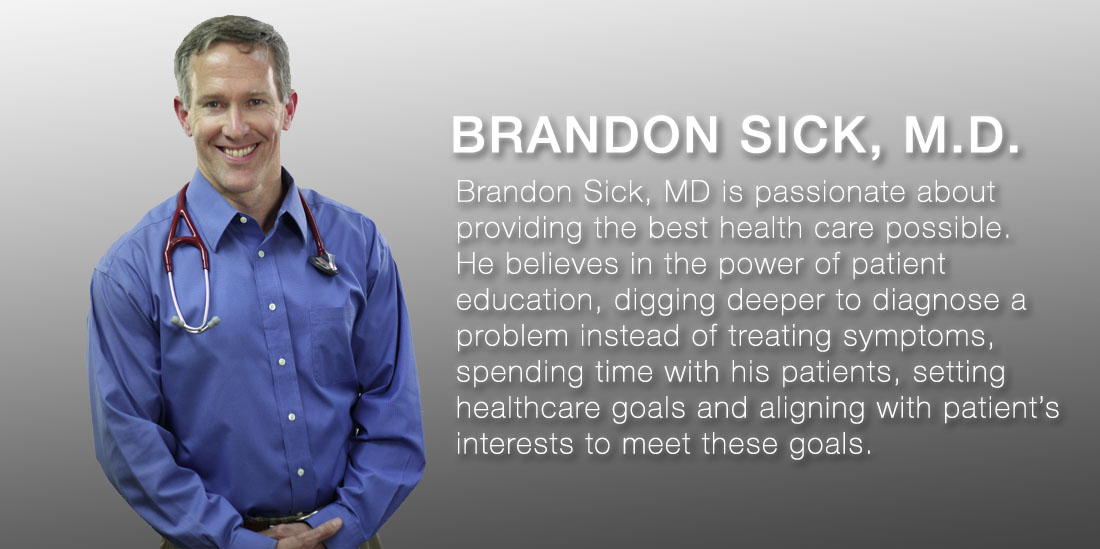 I want to thank you for allowing me the privilege of taking care of your healthcare needs here in Rock Hill for these past 12 years. It has been an honor to help each of you with problems big or small, help you avoid future problems, or make sure you were on the right track. Family medicine was and is one of the most rewarding professions I could have chosen. However, as I’m sure you’ve noticed, medicine has changed dramatically in the last several years, and not for the better. Medicine has become big business and has lost its focus on the patient. Doctors now spend more time doing clerical work required by insurance companies, and less time taking care of patients. It is more difficult to get in to see your doctor for an acute illness, so patients end up seeing someone they don’t know, someone who doesn’t know them. Medical care and health insurance both cost more, yet we get less value in return. Patients and doctors share the above frustrations. It has lead me to a big change. In January, I will be opening my own medical practice, which will be called Rock Hill Primary Care. It is a direct primary care practice focusing on the relationship between the doctor and the patient. Medicine is personal and it’s much more satisfying for doctors and patients when they can get the primary care they need when they need it. It’s a simple philosophy but one traditional medicine is increasingly failing to provide. This is why I’m excited to be able to return to the roots of medicine. This is the type of medicine that I went to medical school to deliver. |













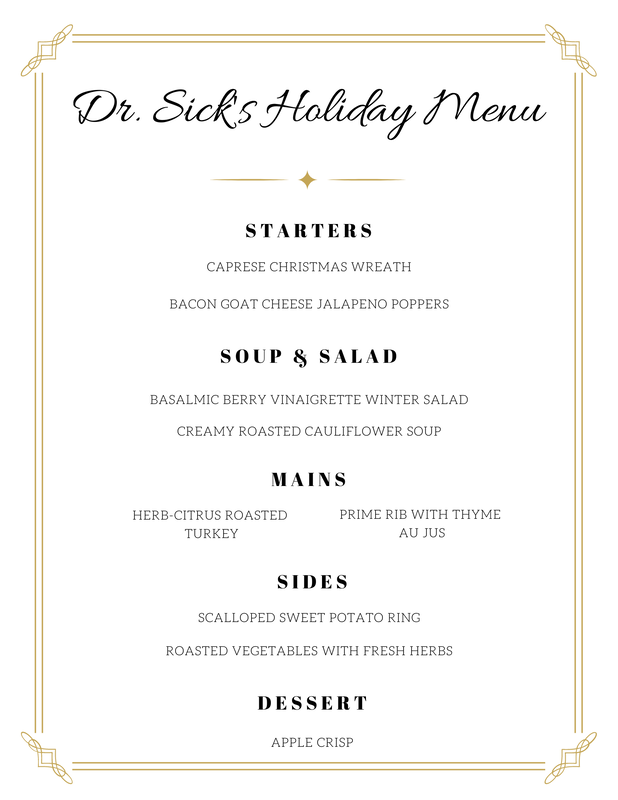


















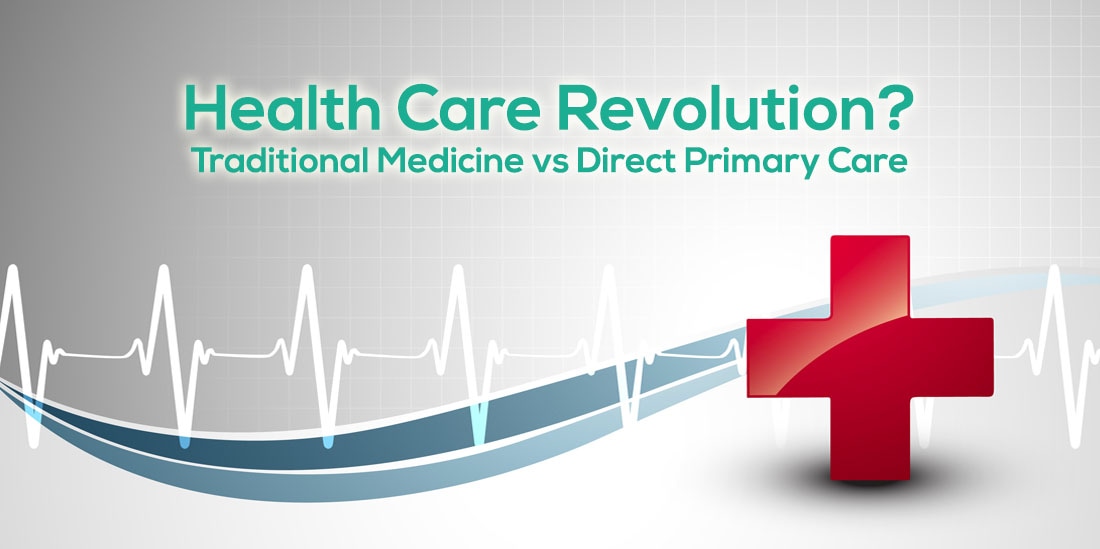
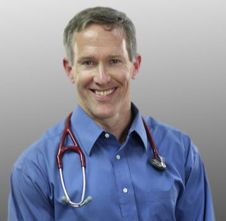
 RSS Feed
RSS Feed